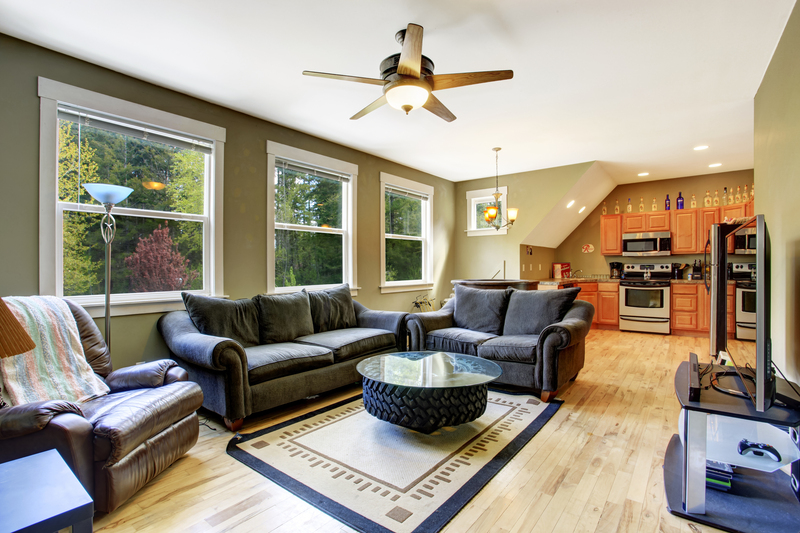Simple Changes for an Environmentally Conscious Home
In today's world, becoming more environmentally conscious is no longer just a trend - it's a necessity. With climate change and environmental degradation being pressing issues, many homeowners are looking for simple yet effective ways to transform their homes into eco-friendly havens. This guide will walk you through actionable steps to convert your home into a more environmentally conscious household.
Why Choose an Eco-friendly Lifestyle?
Before diving into the changes, it's essential to understand the benefits of an eco-friendly lifestyle. Adopting eco-friendly practices not only helps the planet but also offers numerous personal advantages:
- Cost Savings: Many green practices lead to reduced utility bills or maintenance costs.
- Healthier Living Environment: Using less toxic materials and promoting clean air can lead to better overall health.
- Reduced Carbon Footprint: Decreasing energy consumption and waste production contributes to a lower carbon footprint.

Energy Efficiency: A Key Component of Eco-friendly Homes
Cut Down Energy Use
Reducing energy consumption is one of the most effective ways to make your home more sustainable. Consider the following strategies:
- LED Lighting: Replace traditional bulbs with LED lights. They use up to 80% less energy and can last 25 times longer.
- Smart Thermostats: Install programmable or smart thermostats to optimize heating and cooling. These devices learn your habits and adjust settings for maximum efficiency.
- Energy Star Appliances: When replacing appliances, look for the Energy Star label, which ensures they meet high energy efficiency standards.
Switch to Renewable Sources
While reducing consumption is crucial, switching to renewable energy sources considerably lowers your home's impact on the environment:
- Solar Panels: Investing in solar panels can be costly initially, but they significantly reduce long-term electricity costs and carbon emissions.
- Wind Energy: If you have sufficient space, small wind turbines can be another effective way to generate clean energy.
Water Conservation
Reduce Water Waste
Water is a valuable resource that needs to be conserved. By implementing the following tips, you can effectively minimize water waste:
- Low-flow Fixtures: Replace old faucets and showerheads with low-flow alternatives to massively reduce water use.
- Repair Leaks Promptly: A small drip can waste gallons of water over time, increasing utility costs.
- Smart Irrigation: Use smart irrigation systems to water your garden more efficiently, ensuring plants get the water they need without excesses.
Waste Reduction
Adopt Recycling and Composting
Creating less waste is another essential component of a sustainable home:
- Composting: Use a compost bin for organic waste instead of sending it to the landfill. Composted materials can enrich your garden soil.
- Recycling: Set up a recycling station at home to make it easier for family members to sort waste properly.
Reduce Single-Use Products
Cutting down on single-use items significantly reduces your household waste:
- Reusable Bags: Always carry reusable shopping bags to avoid plastic waste.
- No Plastic Bottles: Invest in a water filtration system and use reusable bottles instead of purchasing single-use plastic bottles.
Sustainable Materials and Furniture
Choose Eco-friendly Materials
When renovating or decorating, select materials that are not only sustainable but also durable:
- Bamboo Flooring: Bamboo is a fast-growing plant, making it a more sustainable option than traditional hardwood.
- Recycled Materials: Opt for furniture or decor pieces made from recycled or upcycled materials.
Indoor Air Quality
Enhance Air Quality Naturally
Improving indoor air quality can have significant health benefits. Here's how to ensure cleaner air in your home:
- Houseplants: Introducing houseplants such as spider plants or snake plants can naturally filter and purify the air.
- Avoid Harmful Chemicals: Use natural cleaning products to reduce the number of toxins released into the air.
Mindful Consumption
Be Conscious of Purchases
Mindful consumption goes beyond just the materials you use; it's about the impact of what you bring into your home:
- Buy Local: Support local businesses and farmers to reduce transportation emissions and promote sustainable agriculture.
- Minimalist Approach: Reduce clutter and focus on purchasing items that are necessary and sustainable.

Embrace Technology
Use Technology to Track and Reduce Consumption
Modern technology can assist in creating a more sustainable home:
- Energy Monitoring Devices: These devices can help you track and manage your home's energy use effectively.
- Smart Plugs: Use smart plugs to remotely control devices and reduce power consumption when they are not in use.
Conclusion
Transforming your home into an environmentally conscious abode doesn't require drastic measures. By implementing these simple, eco-friendly changes, you can contribute to a healthier planet while enjoying the benefits of a sustainable lifestyle. Each small action adds up, making a significant impact over time. Start your journey to a more eco-friendly home today, where sustainability meets comfort.